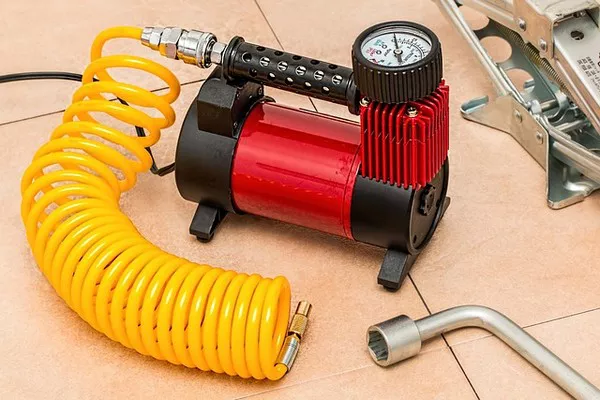Central air conditioning systems have become an integral part of modern homes and businesses, providing efficient cooling and comfort. At the heart of these systems lies the compressor, a crucial component responsible for pressurizing refrigerant and facilitating the heat exchange process. When it comes to central air unit maintenance or replacements, understanding the cost of a compressor is essential for informed decision-making. In this article, we delve into the factors influencing compressor prices and provide insights into making cost-effective choices for your central air system.
The Role of the Compressor
The compressor in a central air unit plays a pivotal role in the refrigeration cycle. It takes low-pressure, low-temperature refrigerant gas from the evaporator coil and compresses it into a high-pressure, high-temperature gas. This compressed gas then travels to the condenser coil, where it releases heat to the surrounding air. The cycle repeats, ensuring a continuous flow of cooled air into the living or working space.
Factors Influencing Compressor Prices
a. Compressor Type
Central air units typically use either reciprocating, scroll, or rotary compressors. Reciprocating compressors, characterized by up-and-down piston movements, are often more affordable but may have a shorter lifespan. Scroll compressors, with spiral-shaped components, offer a quieter operation and greater efficiency but come at a higher cost. Rotary compressors, known for their compact size and energy efficiency, also tend to be pricier.
b. Compressor Capacity
The capacity of a compressor is measured in British Thermal Units (BTUs) per hour. Larger homes or commercial spaces require higher-capacity compressors to meet the demand for cooling. The higher the capacity, the more expensive the compressor is likely to be. It’s crucial to select a compressor with the appropriate capacity for your specific cooling needs to avoid overworking the system and ensure energy efficiency.
c. Brand and Quality
Well-established brands with a reputation for quality and reliability often offer more expensive compressors. However, investing in a reputable brand can provide long-term benefits, such as a warranty, better performance, and increased durability. Cheaper alternatives may save money initially but can lead to higher maintenance costs and a shorter lifespan in the long run.
d. Energy Efficiency
Energy-efficient compressors, often marked with the Energy Star label, may come at a higher upfront cost but can result in significant long-term savings on energy bills. These compressors are designed to maximize cooling efficiency while minimizing electricity consumption. Consider the energy efficiency rating when evaluating compressor options to strike a balance between initial cost and ongoing operational expenses.
e. Installation Costs
The cost of a compressor is not limited to the unit itself. Installation expenses, including labor, refrigerant, and any necessary modifications to the existing central air system, contribute to the overall cost. Hiring a professional HVAC (heating, ventilation, and air conditioning) technician for installation ensures proper setup and can prevent potential issues that may arise from DIY installations.
Average Cost Range for Compressors
As of the latest information available, the cost of a compressor for a central air unit can range from $500 to $2,500 or more. This wide range reflects the diversity in compressor types, capacities, and brands. Reciprocating compressors are generally on the lower end of the spectrum, while scroll and rotary compressors tend to be pricier.
It’s essential to note that these figures represent the cost of the compressor alone and do not include installation expenses. The total cost, including installation, can vary based on geographical location, the complexity of the installation process, and any additional components or repairs needed.
Making Informed Decisions
a. Conduct a Professional Assessment
Before deciding on a compressor replacement, it’s advisable to have a professional HVAC technician assess your central air system. They can identify the root cause of any issues and determine whether a compressor replacement is necessary. Additionally, a professional assessment can help you choose a compressor with the right capacity for your specific cooling requirements.
b. Consider Energy Efficiency
While upfront costs are a significant consideration, it’s crucial to factor in the long-term savings associated with energy-efficient compressors. Energy Star-rated compressors may qualify for rebates or incentives, further offsetting the initial investment. Assess the potential energy savings over the life of the compressor to make an informed decision based on both upfront and operational costs.
c. Evaluate Warranties
Reputable manufacturers often provide warranties for their compressors, offering peace of mind and protection against potential defects or malfunctions. Compare warranty offerings among different brands and models, considering the duration and coverage provided. A longer warranty period can be indicative of the manufacturer’s confidence in the compressor’s durability and performance.
d. Budget Considerations
While it’s tempting to focus solely on upfront costs, consider the overall budget for the central air unit replacement, including installation and any potential additional expenses. A well-planned budget ensures that you make a comprehensive decision that aligns with your financial capabilities and long-term goals.
See Also: What Does An Air Compressor Do In A Car
Conclusion
Understanding the cost of compressors for central air units is a crucial step in maintaining a comfortable and energy-efficient indoor environment. By considering factors such as compressor type, capacity, brand reputation, energy efficiency, and installation costs, consumers can make informed decisions that balance upfront expenses with long-term savings. Regular maintenance, professional assessments, and choosing high-quality components contribute to the longevity and optimal performance of central air systems. When it comes to investing in a compressor for your central air unit, a thoughtful and informed approach will result in a more efficient and cost-effective cooling solution for your home or business.

